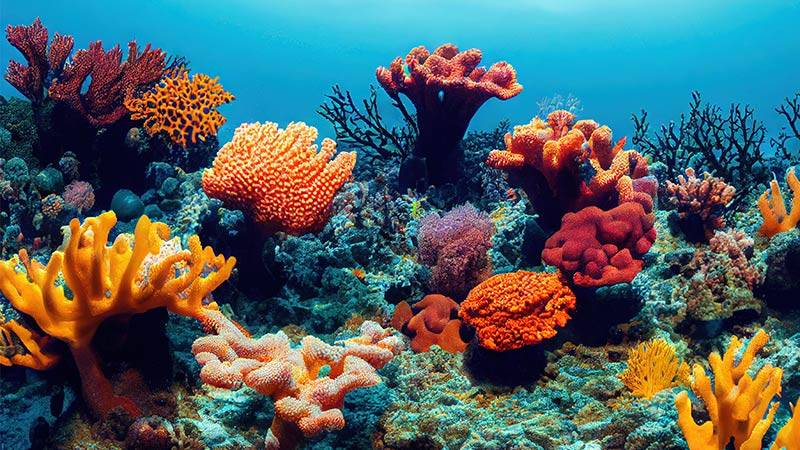As the world grapples with the escalating impacts of climate change, a remarkable endeavor is underway to safeguard and restore the world’s coral reefs, vital ecosystems teetering on the brink of collapse. The plight of these underwater paradises has drawn scientists, conservationists, and technologists into a race against time, employing groundbreaking techniques in their fight against the ravages of climate change and human activity.
In the heart of Western Australia, Taryn Foster, a dedicated coral scientist and CEO of Coral Maker, witnesses the dire consequences of climate change first-hand. Driven by the alarming rates of coral bleaching and mortality during her research, Foster has spearheaded a revolutionary approach to coral restoration. Her initiative leverages her family’s manufacturing acumen, infusing the process with automation and mass production principles. Partnering with software giant Autodesk, Foster has integrated artificial intelligence and robotic automation into the creation of coral skeletons, a critical step in rehabilitating devastated reefs. These technological innovations promise to significantly enhance the efficiency and scale of coral restoration efforts, potentially restoring vast swathes of reef each year.
Meanwhile, in the United States, the Florida Keys Reef Tract, the world’s third-largest coral reef system, faces its own battle for survival. The Coral Restoration Foundation (CRF), the largest reef restoration organization globally, has been at the forefront of efforts to save endangered coral species such as the staghorn and elkhorn corals. Through innovative nursery and transplantation methods, the CRF is making strides in restoring the reef’s delicate balance. Yet, even these restored reefs are not immune to the overarching threat of global warming, which has led to devastating marine heatwaves and pushed ocean temperatures to unprecedented levels, threatening the fragile recovery of these ecosystems.
To create corals for planting, robots work alongside humans, attaching nursery-grown coral fragments to mass-produced coral skeletons on an assembly line. The material used for the coral skeletons is rock or cement; currently Coral Maker uses recycled construction rubble.
Despite the promising advancements in reef restoration technology and methodology, the underlying challenge remains the relentless rise in ocean temperatures due to human-induced climate change. The ocean, a silent custodian, absorbs 90% of the heat generated by human activities, posing an existential threat to coral reefs. These delicate organisms thrive within a narrow temperature range, and the current trajectory of global warming paints a grim picture, with predictions indicating that 99% of coral could succumb to marine heatwaves by the 2030s.
The repercussions of coral decline extend far beyond the reefs themselves. According to the BBC, coral ecosystems are biodiversity hotspots, home to 25% of all named marine species, and are integral to the livelihoods and food security of approximately one billion people worldwide. The loss of these ecosystems would not only spell disaster for marine life but also for human communities reliant on the myriad benefits that reefs provide.
In this context, the efforts of organizations like Coral Maker and the Coral Restoration Foundation are more than just conservation initiatives; they are crucial lifelines for our planet’s future. The projects undertaken, from the robotic-assisted construction of coral skeletons to the nurturing of coral saplings in ocean nurseries, represent a beacon of hope. However, as scientists and conservationists unanimously agree, these efforts alone are not sufficient. The long-term survival of coral reefs hinges on a collective global response to mitigate climate change, reduce local stressors such as overfishing, and prevent macroalgae overgrowth.
The narrative of coral reef restoration is not just about the innovative interventions being put in place; it’s fundamentally about the synergy between these efforts and the broader commitment to environmental stewardship. As the tide of technology meets the waves of conservation, the true measure of success will be the extent to which these endeavors can coalesce with decisive action against the root cause of the crisis – global warming. The future of coral reefs, and indeed the broader health of our planet, depends on this harmonious interplay between innovation and global environmental action.
More inspiring green news similar to this:


